I am trying to solve this: SPOJ problem.
And after some research I found out that it comes down to a simple calculation of the nth fib number, however n can get really large so an O(n) solution won't do any good. Googling around, I found that you can calculate the nth fib number in O(logn) and also a code sample that does exactly that:
long long fibonacci(int n) {
long long fib[2][2] = {{1,1},{1,0}}, ret[2][2] = {{1,0},{0,1}}, tmp[2][2] = {{0,0},{0,0}};
int i, j, k;
while (n) {
if (n & 1) {
memset(tmp, 0, sizeof tmp);
for (i = 0; i < 2; i++)
for (j = 0; j < 2; j++)
for (k = 0; k < 2; k++)
tmp[i][j] = (tmp[i][j] + ret[i][k] * fib[k][j]);
for (i = 0; i < 2; i++)
for (j = 0; j < 2; j++)
ret[i][j] = tmp[i][j];
}
memset(tmp, 0, sizeof tmp);
for (i = 0; i < 2; i++)
for (j = 0; j < 2; j++)
for (k = 0; k < 2; k++)
tmp[i][j] = (tmp[i][j] + fib[i][k] * fib[k][j]);
for (i = 0; i < 2; i++)
for (j = 0; j < 2; j++)
fib[i][j] = tmp[i][j];
n /= 2;
}
return (ret[0][1]);
}
I tried to modify it for the problem and am still getting WA: http://ideone.com/3TtE5m
Am I calculating the modular arithmetic wrong? Or is something else the issue?



